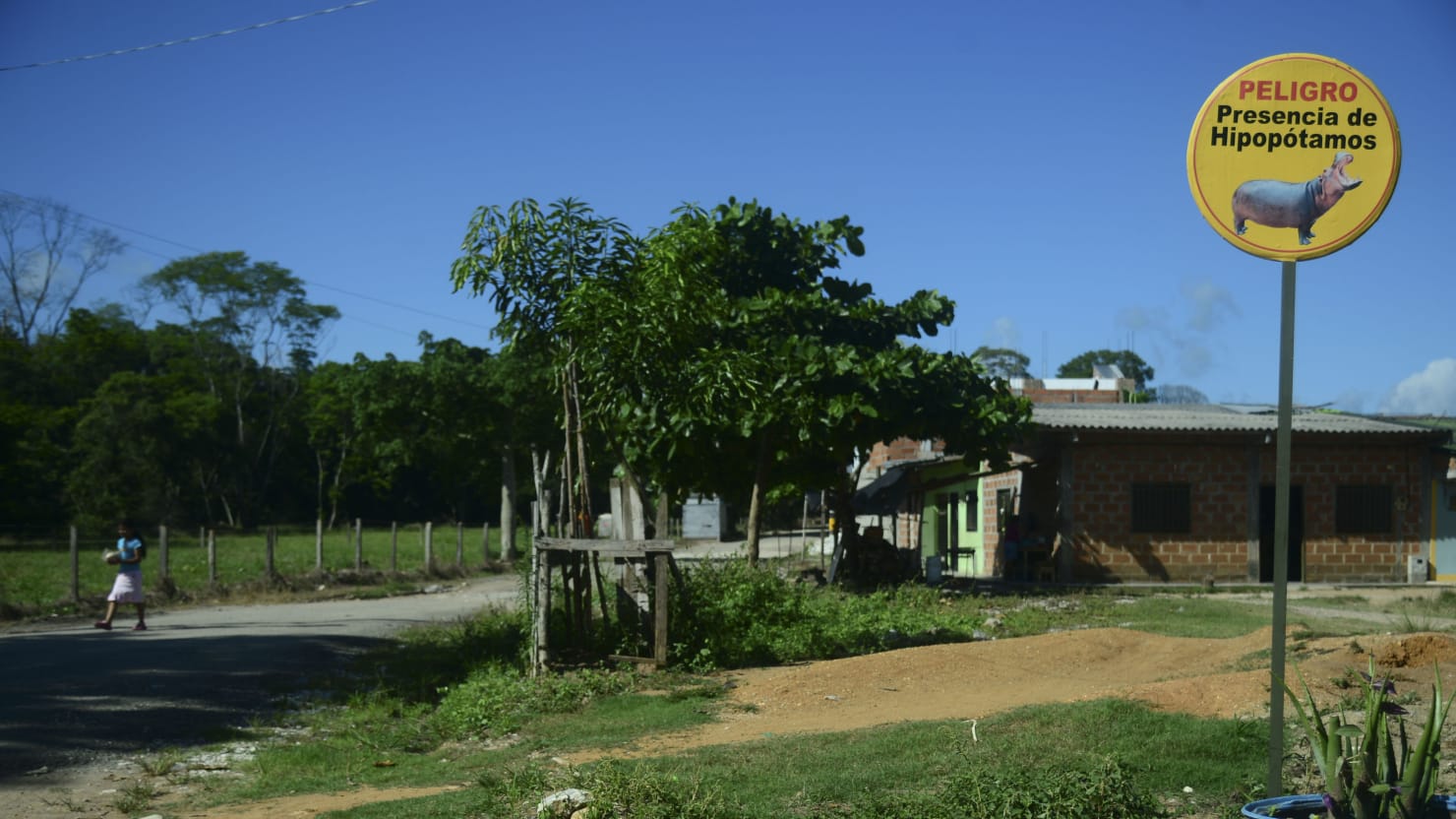Up to 100 hippos, all descendants of four animals that were illegally imported into Colombia by cocaine smuggler Pablo Escobar in the late 1980s, threaten Colombia’s swamps and rivers.
Scientists told The Daily Telegraph that the country must now get rid of the aggressive ‘cocaine hippos’ that roam the Magdalena basin as they breed voraciously in the wet and warm climate of the country. In their natural African habitat, hippos have to contend with a long dry season.
Escobar, who was reportedly worth a whopping $ 25 billion at his peak, making him the seventh richest man in the world, was known for buying sumptuous gifts and bragging that he literally burned money at times to warm his family. to keep.
In 2020, a cousin found a $ 18 million plastic bag hidden in the wall of one of his old houses.
His zoo, complete with elephants and hippos, was just an extra treat.
When he was shot in 1993, the Colombian government took control of his estate, including the animals, most of which were euthanized or sent to zoos and parks.
However, four hippos living in a secluded pond escaped the cull; now dozens of them live in the wild. The exact number is unknown, but the Telegraph put the number between 80 and 100, which they say makes them the largest invasive species on Earth. Their number will reach nearly 1,500 by 2040 if left unchecked.
“Nobody likes the idea of shooting a hippo, but we have to accept that no other strategy will work,” said ecologist Nataly Castelblanco-Martínez. The Telegraph.
The hippos have become a local tourist attraction; paying visitors can tour the former mansion of Escobar and visit the lake where several dozen hippos now live.
But researchers say the hippos compete with native wildlife and pollute local waterways with their poisonous urine and feces.
Hippos are famously aggressive, killing more people annually than any other African mammal. Last year, a Colombian rancher was bitten by a hippo and thrown into the air, breaking his leg, hip and several ribs.
Another expressed method of controlling the hippos, sterilization, has not been successful – due to the fact that male hippos have retractable testicles.
David Echeverri Lopez, a government environmental activist, said The Telegraph that he can neuter about one hippo per year, while scientists estimate that the population is growing at a rate of 10 percent annually.
